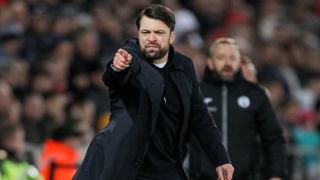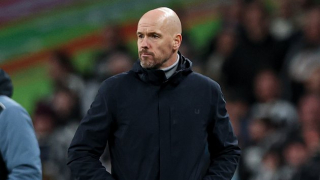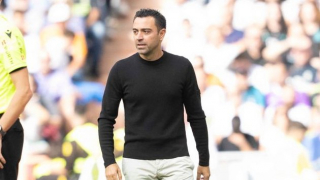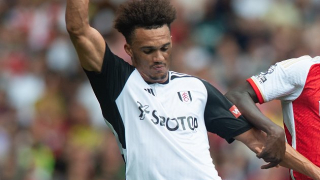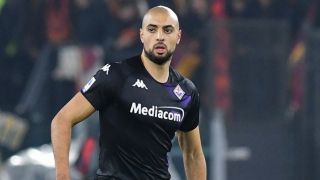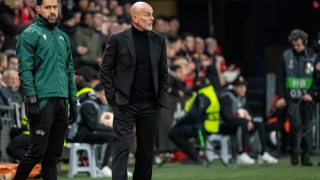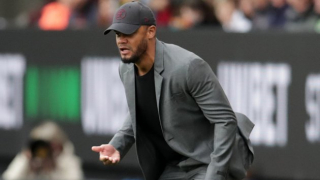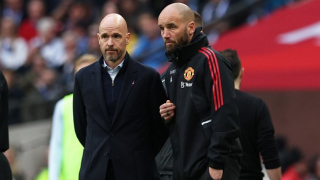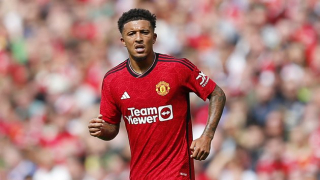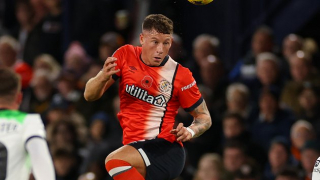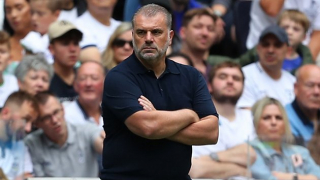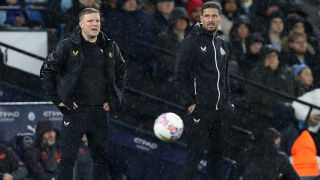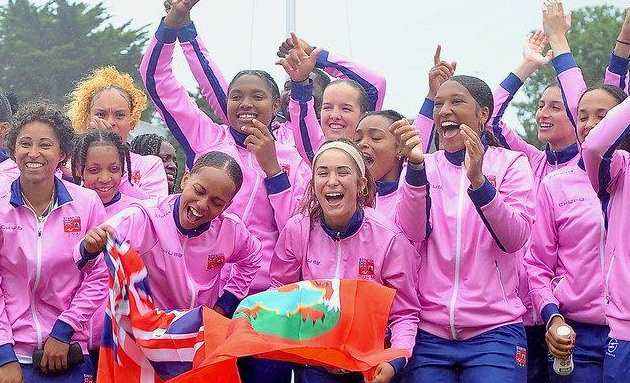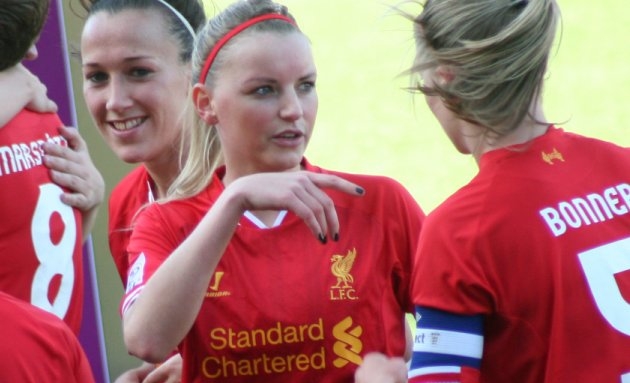This week, we review another international women's football tournament that was held this summer—the Island Games in Guernsey—which was won by Bermuda. TribalFootball.com talks exclusively with Bermuda's long-time WNT head coach Naquita Robinson and Youth Committee Chairperson Manny Faria about the tournament title and the state of football in the nation.
We also examine Greenland, who are seeking admittance to CONCACAF after being spurned by UEFA.
2023 Island Games Women's Football Tournament—Bermuda Wins the Title for the Second Time.
There was another international women's tournament this summer besides the FIFA Women's World Cup in Australia and New Zealand—the Island Games in Guernsey in the Channel Islands—which, though not part of the U.K., Guernsey is a British Crown dependency. The Island Games resumed after a break of six years, with CONCACAF and full-FIFA member Bermuda taking the title, with five shutouts from their quintet of games. The Island Games typically attract non-FIFA aligned nations and this edition had 10 competitors (with Bermuda the only full FIFA member) divided into three first round groups.
Group A
In the only group with four teams: Bermuda, Jersey (Channel Islands), Åland (Finland) and Hitra (Norway), Bermuda started the tournament with a 4-0 win over Jersey. Goals by Ashley Tutas (who plays at the University of Florida) and Eva Frazzoni (who plays in England for Hashtag United in the Isthmian League Premier Division) within the first 20 minutes for Bermuda and then later goals from Symira Lowe-Darrell and former Brighton and Hove Albion forward Leilanni Nesbeth—who plays at Florida State University and won a NCAA title in 2021—helped Bermuda to an emphatic win. Jersey finished second in the group after defeating Åland and Hitra and felt that they had done enough to advance to the semifinals (see more below).
Results:
- Bermuda 4-0 Jersey
- Åland 3-1 Hitra
- Jersey 4-1 Åland
- Hitra 0-4 Bermuda
- Hitra 0-5 Jersey
- Åland 0-2 Bermuda
Group B
The Isle of Wight (English Channel), Isle of Man (a British Crown dependence in the Irish Sea, who were runners-up in the 2017 Island Games and won the 2019 Inter Games, with six teams—five from the U.K. and Hitra of Norway) and Menorca, a Balearic Island in the Mediterranean that is part of Spain, comprised the Group. Isle of Man won the group with an 8-1 goal differential.
Results:
- Isle of Wight 0-5 Isle of Man
- Isle of Man 3-1 Menorca
- Menorca 3-2 Isle of Wight
Group C
Hosts Guernsey played Ynys Môn (or Isle of Anglesey in English, which is part of Wales and the U.K.) and the Western Isles (or Outer Hebrides of Scotland/U.K.). Western Isles won the group with a commanding 12-1 goal differential and used a number of players from Scotland's top flight, while Ynys Mon had midfielder Charlotte Gill from Huddersfield Town, which is in England's Women's National League—Premier Division North (third tier) and finished in a tie for sixth place with a 7-5-10 (W-D-L) record in the 12 team league. Ynys Mon beat Guernsey to qualify for the 5th/6th place playoff game. Western Isles finished fourth in 2011 in their best finish prior to the 2023 event.
Results:
- Western Isles 6-1 Ynys Môn
- Guernsey 2-3 Ynys Môn
- Guernsey 0-6 Western Isles
Since Bermuda, the Isle of Man and Western Isles qualified for the semifinals as Group winners, there was organizational confusion as to who would advance as the second best place team, as Jersey and Menorca were tied on points and goal difference, with the next tie breaker being yellow/red cards. Menorca had two yellow cards from their group games, whereas Jersey only had one, so Jersey initially advanced to the final four, as the tournament organizers announced after the group games concluded.
The next morning however, the Jersey team was crushed to learn that the Island Games Organizing Committee said that an "administrative error" occurred with the recording of yellow cards; Menorca had appealed the original decision, arguing that they were actually level on yellow cards with Jersey. With both teams now level on all tie-breakers, the organizers resulted to a coin toss for the last top four spot and Menorca won the toss and advanced, with Jersey dropping into the 5th and 6th playoff versus Ynys Môn.
Island Games debutant Sofia Rodrigues (who plays at home for club side Jersey Wanderers) said afterwards that: "Everyone was hurt" by the decision, adding that: "To be told one moment that you're in and then wake up the next morning and that is basically snatched away from you, the rules of the competition need reassessed. We should be finishing the tournament in a way [that] it should be settled."
We have to agree with Rodrigues and the Island Games football organizers definitely should not implement VAR in the next few decades or so, in order to stay away from more controversy.
Things only got worse for Jersey in their final tournament game. They led Ynys Môn 2-0 but their defense collapsed and allowed the Welsh side to score two goals to tie the match and, with just moments to go, a last minute winner by midfielder Cerys Gadd (who has played for Bangor City, Amlwch and Caernarfon Town in Wales) made history for the Ynys Môn women's football side, who recorded their best ever finish by taking fifth place. Jersey's women's team won bronze when football was last held at the Island Games in 2017.
Semi-Finals
There were more organizational decisions made in the first game in the semifinals, this time due to an injury in the Western Isles versus Menorca game. By the 36th minute, Western Isles had a 3-0 lead when the referee abandoned the game. The organizing committee decided that Western Isles advanced to the Final in a walkover, with Menorca playing in the bronze medal match.
A statement from the Island Games read: "Due to a medical incident, the Menorca and Western Isles women's football semi-final was abandoned in the thirty-sixth minute at the decision of the referee. At that time, the score was 3-0 to the Western Isles. Due to player welfare and tight time scales with the final being played on Friday, the game could not be restarted. After consultation with the football technical committee and the IIGA, it was decided that the score would stand with the Western Isles proceeding to the final and Menorca playing in the third/fourth playoff."
In the other semifinal, Bermuda struggled throughout the match against the Isle of Man's resolute defense, but the Caribbean team finally scored a winner as Nesbeth headed in the only goal of the game.
Bronze Medal Playoff
The Isle of Man bounced back from their loss to Bermuda to take the bronze medal after a 3-1 win over Menorca.
Final
Bermuda defeated Western Isles 4-0 in the Gold Medal Match to win their second title, after their 2013 Gold Medal when they hosted the tournament (with only three teams), also the last time they had participated in the Games, when they defeated Greenland on penalties after a 0-0 tie in the final. Danni Watson (who was the first women's player from Bermuda to play at a North American University with Dalhousie University in Halifax, Nova Scotia in Canada, where she earned a B.A. and Master's Degree in Education Administration), Nesbeth and Akeyla Fubert (who played at the University of South Carolina-Aiken from 2012-2015) gave Bermuda a 3-0 lead by the hour mark. Jya Ratteray-Smith scored the final goal.
Bermuda's Women's National Team celebrate their 2023 Island Games Gold Medal. Photo courtesy of 2023 Guernsey Islands Games Committee.
For the Western Isles, it was the first medal in their history at the Island Games women's football tournament. Hamilton Academical goalkeeper Chloe Nicolson (21), after starting her senior career with Glasgow Rangers in 2019 and then a loan agreement with Hamilton turning into a permanent move in 2022, where she played 29 SWPL 1 games last season. Hamilton had to come from behind to beat Gartcairn 2-1 in the relegation play-off to ensure that they would play in the SWPL 1 league again in 2023-24.
One positive about the tournament is that, shortly after the Island Games ended, the host side Guernsey started a women's football team with the aim of entering it into the English FA Women's football pyramid. Anna Gauvain, a local women's coach, was named as the head coach of the Guernsey FC women's team; she told the Guernsey FC website that, when she was playing, to have a women's football side entering the women's football pyramid would have been, "an absolute dream to have. We're hoping that we can inspire some of the younger girls to continue their football dream, because there's not really been anything up till now for the youngsters to look forward to. The way that the women's game is going in the U.K., especially with Maya (Le Tissier) breaking through and doing amazing things, we want to follow suit as well."
Maya Le Tissier (21) plays at Manchester United after beginning her professional career at Brighton and Hove Albion. The defender is from Guernsey and played for a U-16 boys' team before moving to England, and played for a representative boy's U-16 Guernsey select side against Jersey.
Tribal Football.com talked exclusively with Bermuda Women's National Team Head Coach Naquita Robinson and Manny Faria, the Chairperson of their Youth Committee and the administrator for the team on the trip to Guernsey.
When asked about their thoughts about their Island Games success, Manny Faria said: "Some people might see the results and think that it might have been easy competition for us but there was a lot of hard work that the players and coaches and staff put into it to do really well….We are used to playing in CONCACAF tournaments and World Cup qualifying so we play against islands our size but also come across islands[/nations] that are much bigger like Jamaica and some of the Central American teams and the U.S. and Canada, so it was good to play in a tournament where everyone is in the same weight class—everyone under 250,000 [population]. It was a good opportunity to assess islands that are basically our size [65,000]."
Naquita Robinson, who has been Bermuda's WNT head coach since 2012, added: "I'm very happy with the result. It's been a process that we have been working on for quite some time now and these players have been with us through major age groups—U-15's, U-17's and U-20's. They played against some pretty good opposition, these same group of girls have played Canada, USA, Jamaica, Puerto Rico [and] Dominican Republic, so we have had some trials and tribulations along this journey and the Island Games was one of our competitions that we wanted to conquer. We hadn't done it since 2013 but there were only three teams. Now we entered the tournament with more teams and more competition, so it's a good feeling to know we were the top team…We have been punching above our weight for a while to create opportunities for our players to get overseas to train more because we are an amateur association; we have part-time coaches and part-time staff so, for us to win the tournament, was a great feeling because it was something we had been working towards."
They explained that 80% of their side plays overseas, either at the club level in England or at the club or collegiate level in the States.
Robinson said: "This is what we want—we want them engaged seven days a week because we can't really offer that. Right now, I can give them four days a week training at a high intense level."
She said that they have good communication with their players when they are "off island" and that it is not dissimilar to many national teams—men's or women's—around the world, where the players come from many different clubs and countries for a national team camp or games. She is pleased with where they are in this process: "We used to be at a point where we picked someone oversees playing at a pub or training at a level less than us—we are comfortable with the level they are training at overseas… That is the track we are on at this time, to make sure players are seen during competitions so they get school or club opportunities, so that they are fully engaged in football seven days a week."
Faria added that eight of their current squad are playing collegiately in the States at the Division I level, with a few at Division II and III schools. They also have a couple of high school players who may join them in the near future. Robinson said that they have a four team top league in Bermuda that fields in the summer: Somerset Cricket Club won the last two league titles without losing a game, utilizing some players from abroad who come home for the summer. She said that Bermuda has more teams for younger females and said: "We are a victim of our success; once they get to a certain age, they are heading overseas for more footballing opportunities to be in the best possible condition to represent the country."
Unlike other countries in the region, like Guyana (see: The Week in Women's Football: Interview with Guyana coach Joseph; Review of Guide to Club Licensing in Women's Football - Tribal Football) or Jamaica, Bermuda is not dependent on their diaspora nor is it a priority focus for them.
Faria explained: "We only have two diaspora [now]."
He said that he was recently in Jamaica for a CONCACAF conference and Jamaica holds two [identification] camps a year: one in the U.S. and one in England, as they are looking for British and American players of Jamaica descent or heritage.
He explained: "We don't have that emigration like a country of Guyana [800,000] or Jamaica [2,800,000], where thousands of people have migrated for the past two or three generations; you can imagine the potential of players they can choose from. We never had that mass exodus out of Bermuda."
Naquita Robinson added: "It's a blessing and a curse to an extent. We want our local-based players to realize that they can rise to the occasion. That was another piece for us for the Island Games—regardless of whether or not you were born in Bermuda doesn't mean that we don't have what it takes to be successful. If we put in the same hard work as the other countries and teams, we can also have success. While I say that I am happy that our players are overseas so that they can be training and solely focused on the football side of things, conditioning and the mental strength [aspects], our local-based players for the most part work, so our overseas players at 7 o'clock in the morning can have a training session, our local players at 7 o'clock in the morning are brushing their teeth and getting ready for work…
"Our reality is we are an amateur [program]. Even though a country like Jamaica is doing workshops in the U.K. and U.S., if I look at the U-20's and U-17's, they still have a good crop of players in Jamaica that can still challenge; that is one of the things we are continuing working on so that our local based players understand what is required at the top level."
The head coach responded enthusiastically to the subject of the recent Women's World Cup: "We were buzzing with the tournament that Jamaica had, as our sister rivals, and inspired us even more. We lost to them 4-0 [on February 17, 2022 in WWC Qualifying, in Kingston, with Manchester City's Khadija Shaw scoring two goals in the last 11 minutes]. They're not four goals better than us and they drew France and knocked out Brazil and made it to the Round of 16. We are inspired to see our sister country do it and we will take steps to mimic that and actually have that same feeling. The Gold Cup is the start of the next step for that."
The inaugural W Gold Cup qualifiers kicks off in September as qualifiers for the W Gold Cup Finals, which will be held in February-March of 2024 in the United States. Bermuda has been drawn with Dominican Republic in League B, with the first leg on Friday September 22 in Devonshire with the return leg in Santo Domingo on Tuesday September 26. She said, "We are up for it—there are four teams [that we have not had] much success against in the region—Haiti, Dominican Republic, Puerto Rico and Jamaica—teams we played more than once. With Dominican Republic we are right there [Bermuda lost their last game against them by a narrow 1-0 score on April 8, 2022 during the last WWC Qualifying cycle, the difference being an 86th minute goal by Vanessa Kara, who played in Finland and with Racing Louisville in 2021 and at Drexel University and the U. of Florida]. We're climbing, slow and steady, and trying to tick boxes and this is the next one to be ticked. The Island Games was a good insight to where the team is for both the staff and the players and we understand what it will take against the Dominican [side]—we have grown and we are hungrier."
Bermuda is definitely another CONCACAF nation to watch in women's football and they have good role models in Jamaica and Haiti to emulate in building a Women's World Cup Finals quality side. Though with a population of under 75,000, Bermuda's head coach Naquita Robinson and FA Chairperson Manny Faria and their staff have a definite plan that they are implementing, and encouraging their players to pursue the sport "off island" is a big part of it. Robinson and Faria were delightful to talk with and I would not be surprised if they advance into later rounds of the upcoming Caribbean region CONCACAF qualifiers and continue to build on their excellent Island Games title win this summer.
Greenland targets joining CONCACAF
Greenland has also participated in FIFA non-aligned football tournaments and their men's team played in the Island Games football tournament this summer (see above), finishing in 8th place. World Soccer, in the July 2023 edition, recently talked to Greenland's men's national team coach Morten Rutkjaer about the growth of the game.
Rutkjaer described how the training facilities and conditions affected their professional progress; "Now we have maybe 24 artificial football fields everywhere in Greenland. So, they can play for seven or eight months outside. But it's tricky in the winter because of the weather. And they don't have the machines to clean the football fields when there is a lot of snow; they go inside and play futsal instead for four or five months a year, so it's difficult for me to have football players who play all year [Iceland—who over 20 years ago started developing many full indoors fields, as of 2018 had 7 in total and another 6 containing half size fields out of 154 total fields in the nation, with 24 full-size artificial pitches that are outside and 6 outside half-size fields—I once saw the first international indoor game in Europe with Sweden's U-20 WNT team playing Iceland's full WNT just outside Reykjavik]. When I have a gathering with the national team, I see they play at a high technical level but miss many tactical things for 11-a-side games. I hope that, in two or three years, they will build a football field with a roof so they can play all year."
Fans watching football in Greenland in the near end-zone-not as close to the action as on the sideline but the panorama is majestic.
Image: Greenland Football
In Greenland, national leagues are not possible so the national championship format is a condensed few week tournament, not uncommon in some developing countries in Asia and Africa and Oceania as well. Only 19% of the country is free of ice and football can only be practiced on sand and ash pitches from late-May to mid-September. Natural grass fields are not possible as moss and water from melting ice can turn them into muddy quagmires. Artificial turf is optimal here given the conditions and there is one, financed by FIFA's Goal Project—through the Danish Football Association—that was built in 2009 in the town of Qaqortoq in the south of Greenland.
In spite of their relationship with Denmark—Greenland is part of the Danish Kingdom but is no longer a direct member of the European Union but retains associate status—UEFA spurned Greenland's attempts to join as a full member and they are now looking at CONCACAF, given their close proximity to Eastern Canada. Greenland has 57,000 people, and though geographically it makes sense, we still have to get our head around games in chilly Nuuk against teams from sunny Guadeloupe or Surinam. CONCACAF could add them as an associate member, like Bonaire (Dutch), French Guiana, Guadeloupe, Martinique and Saint Martin (French) and Stint Maarten (Dutch).
Population-wise, there would not be a problem as Greenland is larger than current members Montserrat (5,400), Anguilla (19,000) and the British Virgin Islands (39,000) and about the same size as the Cayman Islands and Bermuda (both 65,000).
Interestingly, St. Pierre and Miquelon—an overseas collectivity of France and their last lands in North America after being one of the early explorer nations of the continent of and is located off the coast of Newfoundland, Canada—could provide a relatively close rival, though it is still 2,100 miles, almost half the distance (direct) to Georgetown, Guyana of 4,000 miles that Nuuk is, though as a crow flies it is almost directly south to the northeastern portion of South America. Of course, St. Pierre and Miquelon has a total population of less than 6,000 people so they probably won't be popping up at the top of any CONCACAF tables if they are admitted.
Our Bermuda women's coaching and manager interviewees (see above), were very positive to the idea of Greenland joining CONCACAF. Manny Faria, the Chairperson of Bermuda's Youth Committee, said that: "Faroe Island and Gibraltar were members of the Islands games and are now full FIFA members. Some of these islands are pretty good teams." Naquita Robinson said: "More teams give us more opportunities to play matches. I'm not going to be opposed to another country coming in [to CONCACAF]. The more [nations] we have, the more opportunities we have to actually make it into the World Cup as well—I wouldn't be opposed to it in any way, shape or form."
According to Michael Wenger in the Polar Journal in the summer of 2022, women's football is struggling in Greenland as only three teams registered for the national champions in Nuuk last year and in turn the teams didn't all have enough players for a full field game so the women's tournament had to be cancelled.
Aili Pedersen, assistant coach of the Greenland national team in indoor soccer, in an interview with the Sermitsiaq newspaper said: "The will to play football is falling. It's otherwise going quite well with futsal, which is why many players were disappointed when the national outdoor championships had to be cancelled."
It does seem odd in a country where 10% of the residents play football. Pedersen, who plays for women's team NUK in the Greenlandic capital of Nuuk, added: "We need a culture change and clubs need to do a better job of promoting women's teams."
She would also like to see more promotion and more cooperation with the clubs and volunteers from the Greenland Football Association and more systematic youth development to grow the player base in the country. Better and longer-term planning in the championships held in Greenland are a wish too.
In 2018, everything was alright. Players of the women's team GSS are jubilant about winning the Greenland championship.
Today there are hardly enough players to hold a tournament. Image: Greenland Football.
So far, the women, like the men, have played in smaller tournaments such as the Island Games (where the women finished second in 2013 to Bermuda in Hamilton, losing 5-4 on penalties after a 0-0 tie) after regional qualifiers.
We will monitor Greenland's efforts to join CONCACAF, though it likely will be as an associate member, meaning they can play in region-wide competitions but not qualify for world tournaments, until FIFA admits them. CONCACAF was very aggressive years ago in adding small island nations to increase their influence in FIFA elections and committees—compared to Oceania's small numbers and resultant influence in the world body (13 members—11 full and 2 associate members). CONCACAF currently has 41 members—35 full and 6 associate members—and could we see Greenland and possibly a few other members added at the next CONCACAF congress? Time will tell.
Tim Grainey is a contributor to Tribal Football. His latest book Beyond Bend it Like Beckham on the global game of women's football. Get your copy today.
Follow Tim on Twitter: @TimGrainey

